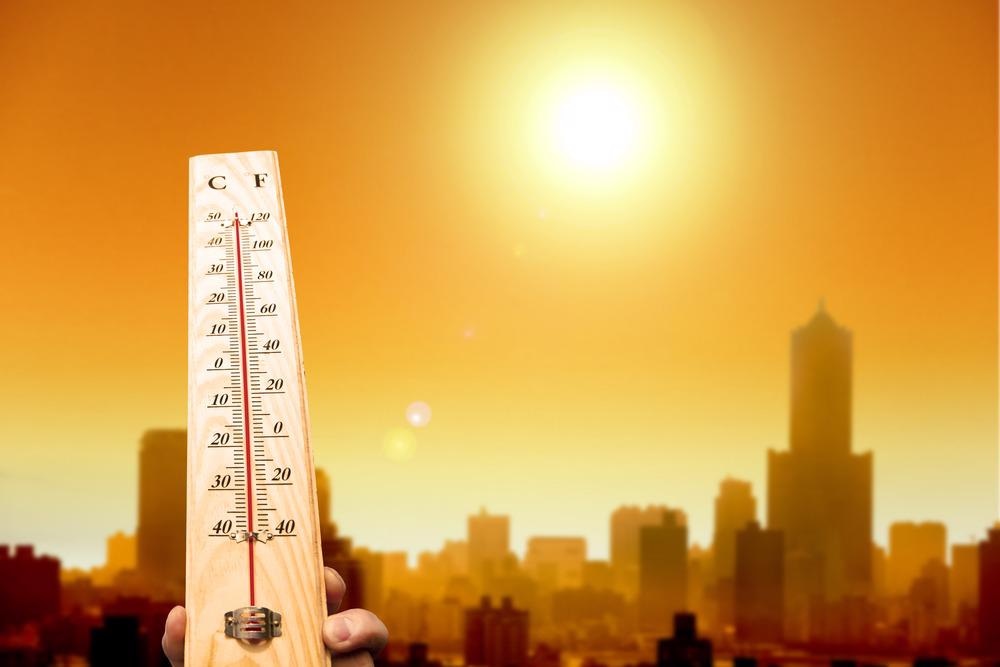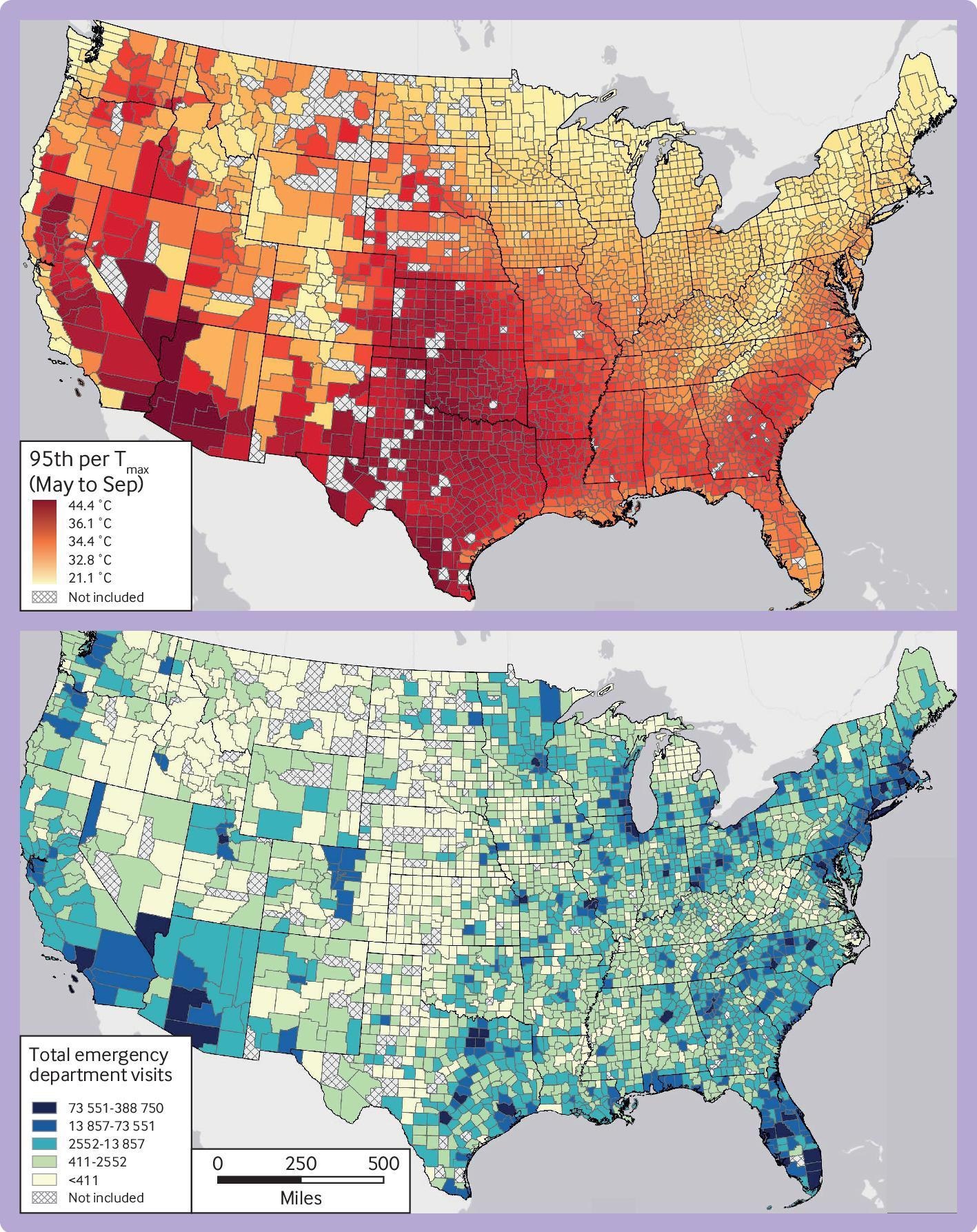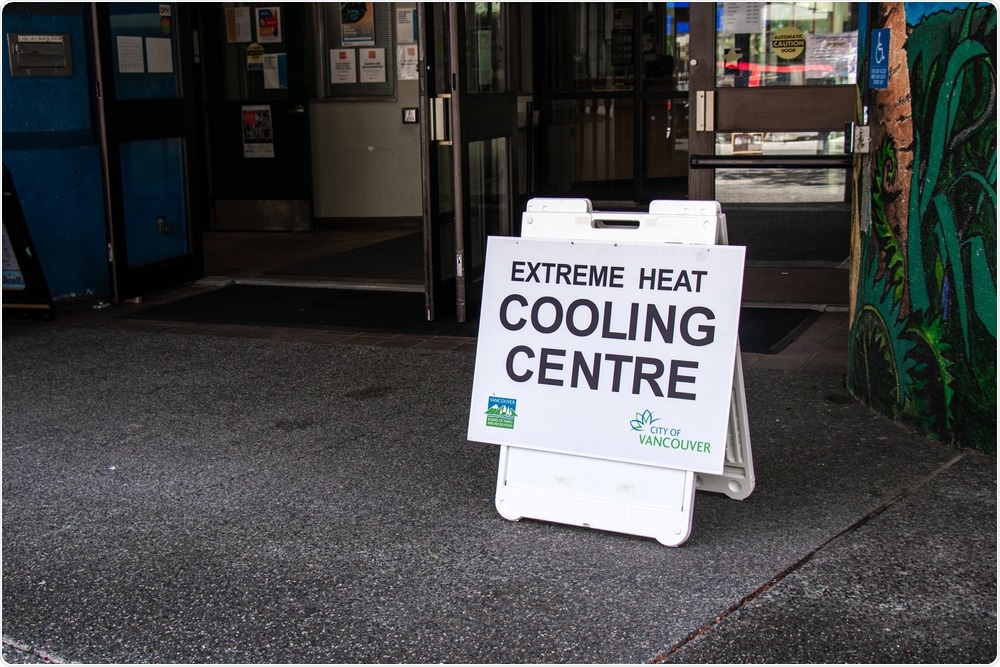I‘m a professor at Boston University and director of BU’s Program on Climate and Health. Our research is focused on understanding how continued climate change threatens our health and how to reduce these risks.
For this study, we were interested in how very hot days can affect adults of any age. Very hot days are known to lead to more deaths, more hospitalizations, and more illnesses. But most of the prior research in this area has focused on older adults aged 65 years and over. We wanted to extend the existing evidence to include young and middle-aged adults as well.
What is meant by the term ‘extreme heat’ and why does it pose a threat to the public?
In this study, we defined extreme heat based on the 95th percentile of maximum daily temperature for each county in the US.
In practical terms, that is approximately the 7th hottest day between May and September wherever people live.

Image Credit: Tom Wang/Shutterstock.com
With the increasing effects of climate change becoming more visible, do you expect to see more days of extreme heat as time goes on? What impact will more frequent days of extreme heat have on people?
Yes. Because of climate change, much of the world is already experiencing more days of extreme heat. And as very hot days become more common and more extreme, we expect that many more people will be at risk of heat-related deaths and heat-related illnesses.
Can you describe some of the health impacts extreme heat causes?
The most direct effects of extreme heat can include heat rash, heat cramps, heat exhaustion, and heatstroke.
But even more important may be the indirect effects of heat on increasing the risk of several illnesses and conditions, ranging from dehydration and fluid imbalances to kidney problems. In other words, extreme heat can lead to people feeling unwell from a number of conditions, especially among individuals with preexisting conditions.
Why is less known about the impacts of extreme heat on young adults compared to older adults? Why is it critical to have information regarding every population?
To better protect the public’s health, we need to understand how heat threatens the health of people of all ages.
Much of the prior research on the effects of heat have focused on the risk of death, which primarily involves older adults, or in the US on the risk of hospitalization among Medicare beneficiaries aged 65 years and over. As far as we know, this is the first national-scale study of the health impacts of heat on adults of all ages.
Can you describe how you carried out your latest research into extreme heat? What did you discover?
We leveraged healthcare claims data on 74 million adults with health insurance and living in virtually every county in the US and experiencing nearly 22 million visits to the emergency room. In this population, we found that days of extreme heat were linked to a higher risk of emergency room visits for any cause, heat-related illnesses, and renal diseases.
We also found that heat was associated with a higher risk of emergency room visits for mental disorders. Importantly, heat affected the health of adults of any age and living in any region of the country.

Image Credit: BMJ 2021;375:e065653
Why are younger adults at greater risk of exposure to extreme heat? What advice should be given to young adults on days of extreme heat?
Although we commonly think of the elderly as particularly vulnerable to the effects of heat, this study shows that young and middle-aged adults are also at higher risk on hot days. Although younger adults may be healthier than older adults, they may also be more exposed to heat.
For example, workers that spend a lot of time outside – such as roofers, landscapers, agricultural workers, and delivery drivers – may be at risk because they are physically active in the heat for hours at a time. Younger adults may also be less aware of the risk to their health from heat and less likely to change their routines to protect themselves, even on the hottest days.
What measures also need to be put in place to reduce heat-related complications? Why do these measures also need to differ between regions, states, and counties?
Many communities already have detailed systems in place to warn the public about the health risks ahead of forecast hot days, provide information about preventing the worst health effects, and open cooling centers where people can go cool off for a few hours if they need. These systems are very important, but not enough to protect people from the effects of heat.
Unfortunately, there isn’t a one-size-fits-all solution to this. Instead, public health leaders will have to work within their communities to understand who is at greatest risk of these health impacts and how to best help those groups.
Why are your findings so important? Were there any goals of your research?
The key message here is that each one of us – regardless of age, gender, or where we live – is at risk of the health effects of extreme heat.
As hot days become more common and more extreme, we need to be aware of these risks and ready to protect ourselves, our loved ones, and our communities.

Image Credit: Margarita Young/Shutterstock.com
What are the next steps for you and your research?
We have been working to understand the risks that heat may pose to kids of all ages, from newborns to older adolescents. Kids tend to spend a lot of time outside and may be less able to recognize when they are overheating, and so potentially at high risk as well. But heat may impact kids in different ways as compared to adults. We’re working on figuring that out.
Where can readers find more information?
You can find out more about BU’s Program on Climate and Health here. The study paper is freely available here and summarized in this piece. To learn more about the health impacts of heat, see here or here.
About Professor Gregory Wellenius
Gregory Wellenius is a professor of environmental health at Boston University and directs BU’s Program on Climate and Health. He is an epidemiologist and leading expert on the health effects of air pollution, extreme heat, and hurricanes, all of which pose important health threats in the context of continued climate change.
Dr. Wellenius serves as a member of the executive committee of the Extreme Heat Resilience Alliance of the Adrienne Arsht-Rockefeller Foundation Resilience Center. This study was funded by the National Institutes of Health and the Wellcome Trust.